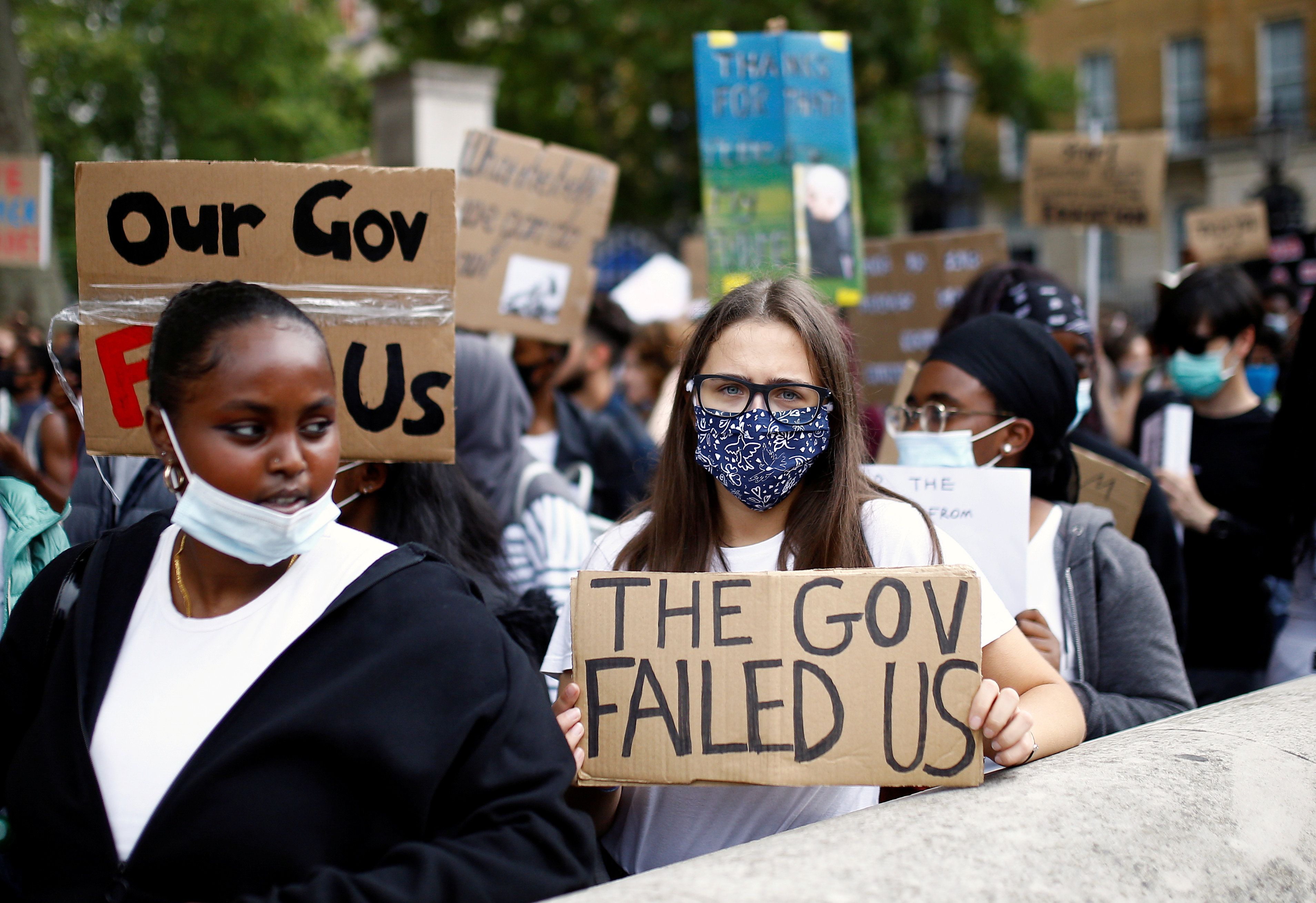What We're Watching: UK exam fiasco, Thai protests grow, GERD negotiations resume
The UK's exam fiasco: The UK Department of Education has landed Prime Minister Boris Johnson in hot water over a national scandal involving computer-generated "mock" test scores assigned to hundreds of thousands of high school students. A wave of "A-level" standardized exams (taken at the end of high school) were recently cancelled because of the coronavirus. But in order to assign students the scores that they would likely have gotten if they had taken the test, the UK's exam regulator, known as Ofqual, used an algorithm. (Algorithms in 2020, what could possibly go wrong?) The algorithm's reliance on two unsound key indicators — a school's past performance and students' results from primary school — placed high-achieving students at poorly-performing public schools at a massive disadvantage. Some 40 percent of students say the algorithm "downgraded" their results from teachers' assessments (teachers submitted their own assessed grades but they were not supposed to be taken into consideration). After hundreds of students took to the streets over the weekend, decrying Ofqual's mishandling, which they say messed up their university placements, authorities scrapped plans to use the algorithm and will now use a different system to determine final grades. Still, it's up to students to get in touch with universities to see if they still have a place. The situation is still extremely....messy.
Thai anti-government protests grow: At least 10,000 young activists took to Bangkok's streets on Sunday to rally against the Thai government. It was the largest protest the country has seen since 2014, when the military seized power in a coup, the 13th military coup in the country since the 1930s (Thailand has had more military coups than any other country in the world.) The youth-led movement has upended Thai politics in recent weeks by daring to question not only the role of the men in uniform but also that of the once-untouchable monarchy. It's an unprecedented show of defiance in Thailand, where any offense against the royal family can be punished with a long jail sentence. So far, however, the army has shown restraint in cracking down against the protesters — who demand fresh elections and a new constitution that curtails the powers of both the military and the monarchy — and only one prominent pro-democracy leader has been arrested. We're watching to see if the generals lose patience with the demonstrators in the days ahead.
More of these dam negotiations: This week, Ethiopia, Egypt, and Sudan meet once again to try to reach an agreement on Nile River water rights involving the Grand Ethiopian Renaissance Dam (GERD). Ethiopia recently completed the mega-project, which is meant to boost the country's economy and turn it into a major electricity exporter. But downstream, Egypt and Sudan are worried that the dam will leave their farmers, industries, and households without enough water. They want a detailed and binding agreement that lays out exactly how much water Ethiopia can use, while Ethiopia's leaders want a more flexible accord. Tempers have flared over the issue, with both Egypt and Ethiopia threatening to go on a war footing in the past. Things are now coming to a head as Ethiopia begins filling the dam, over objections from Cairo and Khartoum. We're watching to see if there's any progress this week, or whether prospects for a deal before GERD gets going in earnest are as good as water over the dam. If so, the stage would be set for seasonal tensions over water that could quickly spiral from one year to the next.
